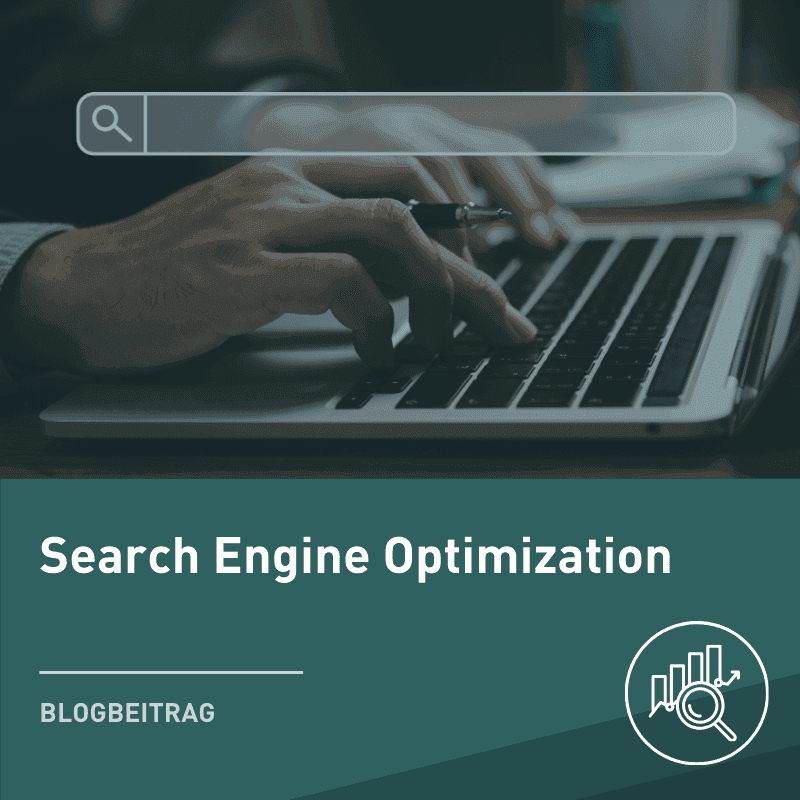
Blog Post
SEO

Nadine
Wolff
published on:
24.06.2015
Optimizing existing content: what should you pay attention to?
Table of Contents
Rarely is SEO a focal point from the start when creating website content. If companies later develop an awareness of the important criteria in creating content that is also optimized for search engines, the question arises: How should existing content be handled? Is it risky to revise content afterwards, possibly losing rankings and traffic? What should be considered during optimization to prevent this? Our tips provide you with an overview.
Status Quo: Evaluating Existing Content
To assess whether the optimization of certain articles, blog posts, categories, product pages, or other content pages is worthwhile, you should first evaluate them:
Organic Traffic: How many visitors are already coming to the page through unpaid search results? Google Analytics provides information and shows the development. If the page receives a significant number of visitors through the organic channel (compared to the entire domain and other subpages), caution is advised, and further analysis is important:
Rankings: How does the page rank on average? Although limited in its meaningfulness, it is still interesting to see the evaluation in the old "Search Queries" report. It also shows for which keywords the individual page is already found.
Keywords: Based on the analysis of search queries, it is worthwhile to check: Is the page actually found for the search terms that are particularly important to you for this specific page? If so, special attention should be paid to maintaining or even improving these rankings. You may also find that the results are already optimal and that you should better focus your optimization efforts on other subpages.
Conversions: Ideally, you have established a primary goal or multiple goals for each subpage. What should the visitor do on this page? Read more articles? Sign up for the newsletter? Get in touch? Visit your social media channels, become a fan, and follow you? Purchase the described product? Once you have defined your goals (and have set up your Google Analytics accordingly), you should evaluate whether the visitors of the analyzed page actually perform the desired action. If not, there is obviously a need for optimization regardless of how well the page is found through search engines.
Revision: Choosing and Optimizing Keywords
If you determine that the analyzed page indeed needs optimization, aside from structural aspects (correct headline marking), the question of important search terms arises. Although in 2015 it is less about strict optimization on a single keyword and more about increasing relevance for a topic context, keywords are still an important basis for this.
If the page already ranks well for keywords that are meaningful and important, ensure that you retain these during the revision. The title tag and the headings are particularly important here. If you want to optimize for other or additional keywords, compare the potential of the old and new keywords:
What is the search volume?
Which keyword is more relevant/important to you as a company and the respective page?
Which keyword is closer to the desired conversion (e.g., purchase in the online shop)?
When you have determined the 1-2 most important keywords and defined additional search terms important for the topic context, investigate to what extent these are placed on the page:
Metadata: Title Tag and Meta Description
Headlines
Beginning of the text
In the rest of the content
At the end of the text
In image attributes and captions
A specific number for "keyword density" has not been reasonable to set for years. However, the fact remains: Only in exceptional cases will you rank for a term that is not placed anywhere on the page. (In the context of semantic search, this may change in the future, but we are not there yet.) And headings and the title tag are still important places to place keywords, if only to give visitors searching for these terms the feeling that they have come to the right place with you.
Note: The topic of conversion optimization is so complex that it will not be addressed here. The reasons why a user does not convert and how this can be improved are diverse and can only be determined through detailed analysis.
Success Monitoring: What Has the Optimization Achieved?
Once you have revised the content of a page, it is important to regularly assess how the numbers develop through optimization. Google Analytics (or another professional web analysis tool) and webmaster tools provide answers to questions like:
Has the traffic over Google organic increased?
Through which terms is the page found?
Does the page continue to rank for the old keywords?
How are the rankings of the new keywords developing?
How Can We Support You?
Would you like to further educate yourself and your editorial team in the area of search engine optimization? Our experienced SEO experts are happy to train you in small groups, hands-on, and tailored to your needs. Learn more!

Nadine
Wolff
As a long-time expert in SEO (and web analytics), Nadine Wolff has been working with internetwarriors since 2015. She leads the SEO & Web Analytics team and is passionate about all the (sometimes quirky) innovations from Google and the other major search engines. In the SEO field, Nadine has published articles in Website Boosting and looks forward to professional workshops and sustainable organic exchanges.


